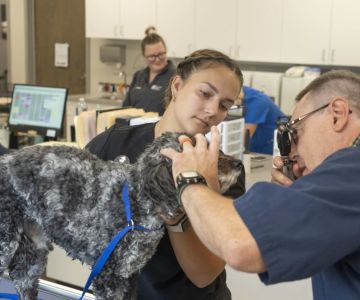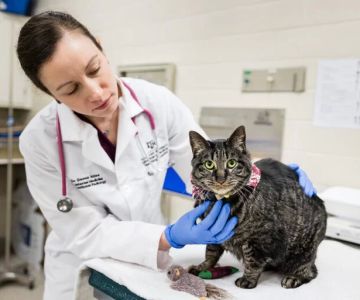Choosing the Right Major to Become a Veterinarian: A Detailed Pathway to Your Dream Career
- 1-choosing-the-right-major
- 2-essential-academic-foundations
- 3-real-life-experience-and-case-studies
- 4-preparing-for-vet-school-admission
- 5-strategies-for-a-successful-veterinary-career
1. Choosing the Right Major to Start Your Veterinary Journey
Deciding what major should I choose to become a veterinarian is the foundational question for anyone passionate about animal health. While there is no single mandatory major to enter vet school, choosing the right undergraduate path can make a huge difference. Common majors include animal science, biology, pre-veterinary studies, and sometimes chemistry. Each offers a unique blend of coursework designed to prepare you for the rigorous vet school curriculum.
For example, an animal science major provides in-depth knowledge about animal physiology, nutrition, and behavior — critical for a future vet. On the other hand, a biology major offers a broader understanding of living organisms and genetics, which can be advantageous in research or specialized veterinary fields.
It's important to select a major that not only meets veterinary school prerequisites but also aligns with your interests and strengths. Balancing your passion with practical academic preparation is key to success.
2. Essential Academic Foundations: Building Knowledge for Veterinary School
Regardless of the major chosen, prospective veterinarians must complete core science courses required by most veterinary schools. These usually include general biology, organic and inorganic chemistry, physics, biochemistry, and animal physiology. These courses ensure you have the solid scientific foundation necessary for the complex subjects covered in vet school.
Many universities offer specialized pre-vet tracks or advising programs that help students navigate these course requirements while pursuing their chosen major. Utilizing these resources can increase your chances of acceptance by ensuring you fulfill all prerequisites efficiently.
One real-world example is Sarah, a biology major who supplemented her coursework with electives in animal nutrition and veterinary ethics, which helped her build a competitive vet school application.
3. Real-Life Experience and Case Studies: Beyond Classroom Learning
Choosing the right major is only part of the journey; gaining hands-on experience is equally vital. Volunteering at animal shelters, shadowing veterinarians, or working as a veterinary assistant provides invaluable exposure to the day-to-day realities of veterinary medicine.
Take the story of James, who majored in animal science and spent summers working at a wildlife rehabilitation center. This real-life experience not only confirmed his passion but also strengthened his vet school application by demonstrating practical skills and commitment.
Moreover, understanding diverse cases — from household pets to farm animals — enriches your perspective and prepares you for various veterinary specialties. Engage with your university’s clubs, internships, and community outreach programs to deepen your practical knowledge.
4. Preparing for Vet School Admission: Strategic Academic and Extracurricular Planning
Admission to veterinary school is competitive, so a strategic approach to your undergraduate education is crucial. Beyond major selection, maintaining a high GPA, scoring well on the GRE (if required), and obtaining strong letters of recommendation can set you apart.
Focus on developing strong communication skills, as veterinarians must effectively explain diagnoses and treatments to pet owners. Participating in leadership roles or research projects can highlight your dedication and versatility.
Planning your coursework to align with vet school prerequisites while engaging in meaningful extracurriculars reflects both your academic preparedness and passion for veterinary medicine.
5. Strategies for a Successful Veterinary Career: Beyond Choosing Your Major
Once admitted to vet school, your major choice serves as the foundation, but ongoing learning and specialization will shape your career. Consider areas like surgery, dermatology, or exotic animal care to differentiate yourself.
Investing early in professional development—attending conferences, joining veterinary associations, and networking—can open doors to exciting opportunities. Additionally, keeping abreast of technological advances in veterinary medicine will help you provide the best care to your patients.
For those ready to take the next step, exploring comprehensive veterinary educational resources and tools can facilitate your preparation for vet school entrance exams and beyond.
Explore our curated collection of veterinary textbooks, practice exams, and online courses tailored specifically for pre-vet students and aspiring veterinarians to enhance your knowledge and confidence as you embark on this rewarding journey.









